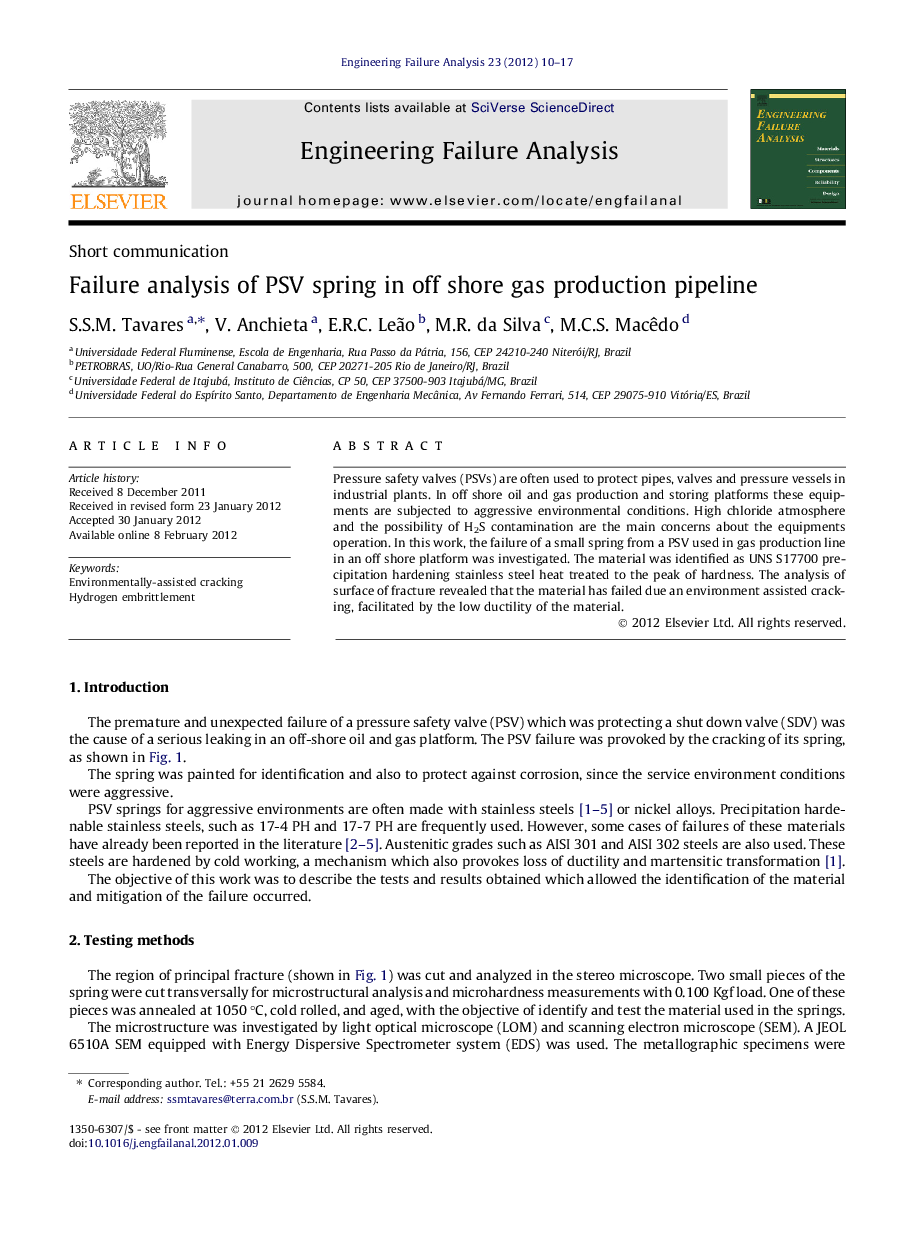| کد مقاله | کد نشریه | سال انتشار | مقاله انگلیسی | نسخه تمام متن |
|---|---|---|---|---|
| 769816 | 1463001 | 2012 | 8 صفحه PDF | دانلود رایگان |

Pressure safety valves (PSVs) are often used to protect pipes, valves and pressure vessels in industrial plants. In off shore oil and gas production and storing platforms these equipments are subjected to aggressive environmental conditions. High chloride atmosphere and the possibility of H2S contamination are the main concerns about the equipments operation. In this work, the failure of a small spring from a PSV used in gas production line in an off shore platform was investigated. The material was identified as UNS S17700 precipitation hardening stainless steel heat treated to the peak of hardness. The analysis of surface of fracture revealed that the material has failed due an environment assisted cracking, facilitated by the low ductility of the material.
► Failure analysis of PSV springs reveals a hydrogen sulfide cracking mechanism.
► A 17-7 PH steel heat treated to the peak of hardness becomes highly susceptible to hydrogen sulfide cracking.
► PSV springs for chloride and H2S environments must have a hardness control to avoid environment induced cracking.
Journal: Engineering Failure Analysis - Volume 23, July 2012, Pages 10–17